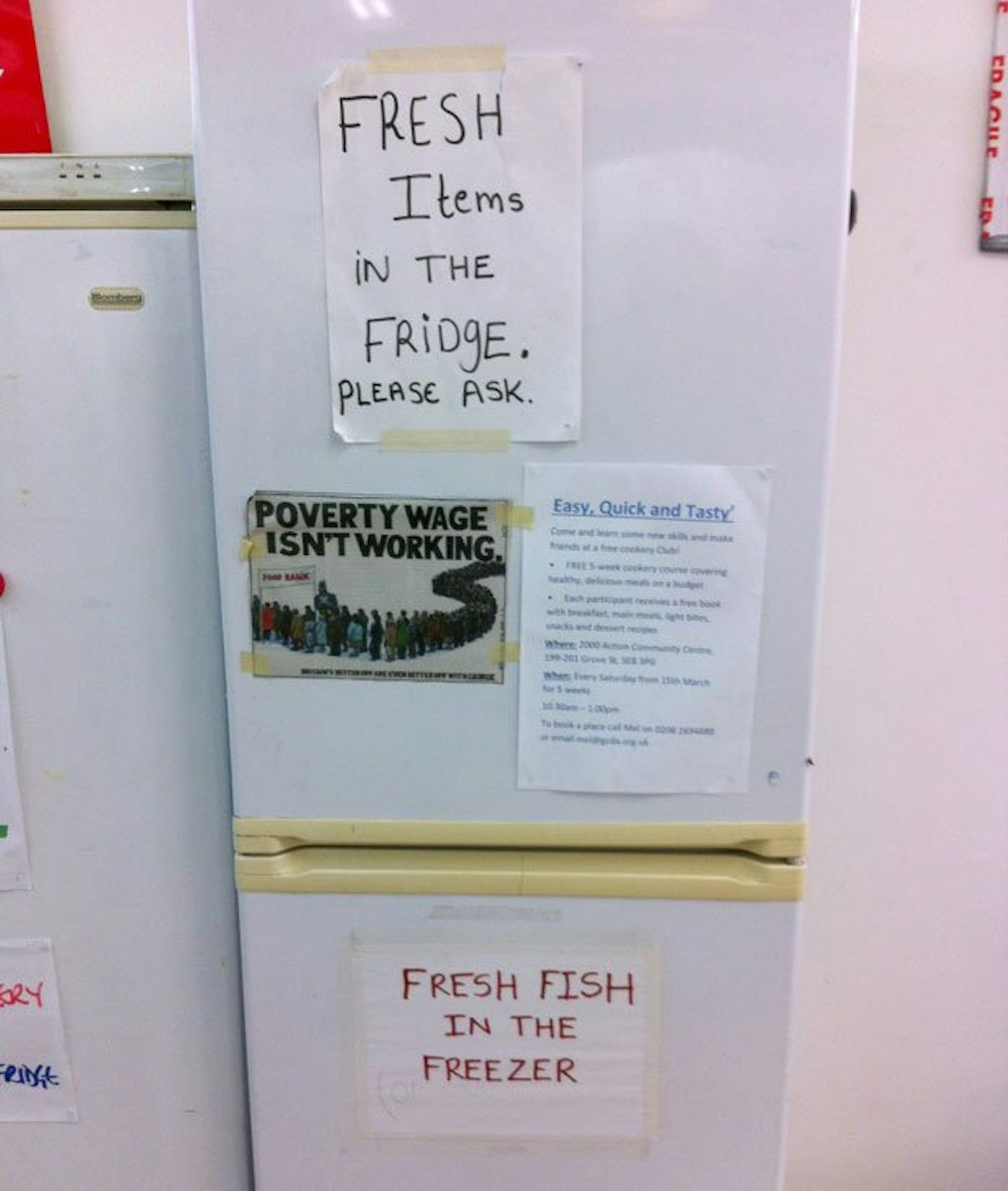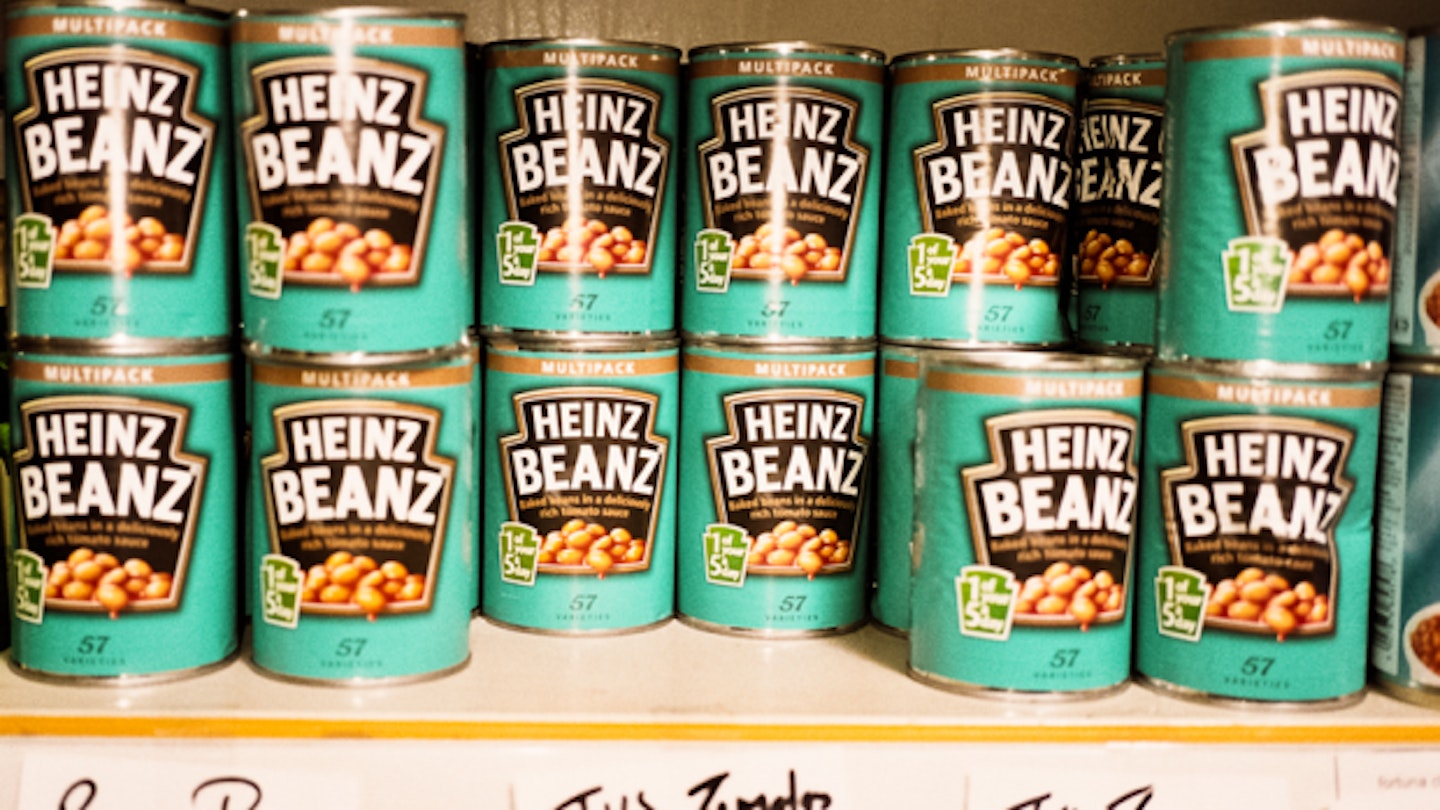It wasn’t that long ago that the term ‘food bank’ was considered a dirty word. It successfully conjured up images of Dickens-style poverty, soup kitchens – and spawned the types of headlines you’d read in alarmist newspapers about 'benefit scroungers.' Who can forget the now infamous comments made by welfare minister Lord Freud last year who claimed more people were going to food banks because the food was free, as opposed to actually, you know, being hungry?
But, last week, the headlines changed. The University Of Hull released new information saying the number of students taking advantage of its food bank had doubled in the past year. ‘The reasons are the rise in the cost of living and also some students are getting their student loans quite late. We’re lucky here with the support we’ve got for the food-parcel service from the university,’ NUS student welfare officer at the University, Brittany Tomlinson, told The Independent. ‘There is no question that this is a growing trend. I know five or six unions [at different universities] across the country which are planning to do something.’
The number of students taking advantage of its food bank had doubled in the past year
But it’s not just students. Hit by welfare cuts, young people all over the UK have been surging into their local food banks – more of which are opening up – as illustrated by the astronomical change in use of Lewisham’s centre. Situated between Deptford and New Cross in South East London, the food bank was set up to support ‘local people in crisis, providing at least three days worth of food for those in need’ in September 2012.
Since then, they’ve seen a steady flow of hard-hit people dropping by but, in the past six weeks, the food bank has grown from a small room to filling a large space at the back of a shop to meet the demand – and that’s only just enough. ‘It’s been getting busier and busier since I’ve been here,’ the manager Julie Ling tells The Debrief. ‘We have teenagers struggling on their own, young families, elderly people, and most of them blame the rising cost of utility bills and changes to welfare policies as a direct result. Young women on benefits just can’t afford to eat a lot of the time.’

The food bank aims to provide support for families and vulnerable individuals who have trouble supplementing their low income or benefits. This, unfortunately just describes a wider net of people that it used to. ‘It gets very busy. People who own small businesses, students, pensioners…,’ Julie sighs as she sifts rice into bags. ‘You really get everyone in.’
The food bank is open every day from 11am-2pm, with the busiest days being Monday and Saturday. The service has few rules. The visitors must live in the catchement area of Lewisham and Greenwich borough, and they must be in possession of the newly implemented ID cards which prove their address – a result of some users abusing the system and hitting up all the banks in the area. For a pound, you are allowed to pick 10 items (one of which is protein) from food including pasta, tinned goods, frozen fish and chicken, cereal, fruit and veg, and toiletries. The stock is donated by local supermarkets, and according to Julie, the most generous are Tesco and Waitrose who drop stock off three times a week. The stingiest, she says, is Sainsbury’s, who donate a mere few times a month.
For a pound, you are allowed to pick 10 items (one of which is protein) from food including pasta, tinned goods, frozen fish and chicken, cereal, fruit and veg, and toiletries
Visiting on sequential days, it’s clear that while there’s a steady ebb and flow of people flocking to the food banks – the food itself is less regular. On Monday there’s plenty – and Waitrose have even donated loads of daffodils for people to take away cheerfully with their supplies. But by mid-week the stock has noticeably deteriorated - a detail not overlooked by regular visitor Cynthia who pulls me aside and mock-shouts about the lack of cereal choice.
Cynthia is half-joking, but her situation isn’t funny. ‘Right now, I'm really not happy. I need to build myself up to a position where I feel a lot more stable financially,’ the 40-year-old told me about why she frequents the food bank. ‘I heard about this place because my grandmother knew someone who came, and at first I turned my nose up at it, but your pride goes once you’ve had a crap time. When you’re going through a situation, you just think, ‘I don’t care who sees me going there… it’s 10 items for a pound!’”
As the day progresses, I get a sense of the cross-section of people that visit. It’s noticeable that today the majority are women – although, Julie insists that this is merely a coincidence. Sarah, 72, and Bridget, 64, tell me they started using the food bank as a direct result of rising utility bills which meant that they could no longer supplement their pension. But I’m most shocked by 26-year-old Clara’s story. ‘I’ve been using the food bank for about six months and I’ve been so surprised about how many younger women have been here. The reason I use it is purely connected to my gas and electricity bills being far too high,’ she tells me. ‘I graduated a year ago from university with an art degree and found it really hard to find work. I signed on and have been doing unpaid internships and I require housing benefit at the place I’m in now. I started coming here because I just couldn’t afford to live. My dream is to work as an artist but, until I can find a way to do that, I’ll probably be coming here, but my plan is to continue finding work.’
‘I graduated a year ago with an art degree and found it really hard to find work. I started coming here because I just couldn’t afford to live.'
She’s not alone – Julie says there are now plenty of young women visiting the centre. ‘I do think that there’s no shame now,’ Clara says when I ask her about whether she’s surprised that a new generation are having to resort to food banks. ‘There might have been a few years ago, but now it’s so common that it’s just seen as a smart service for people who are struggling. It’s perfect for people like me, because it’s helping me through a hurdle.’
As the day goes on and people drift in and out, I notice that the walls are adorned with framed newspaper articles championing the existence of food banks, and cooking classes are also offered to anyone visiting. Alongside the food bank is a charity shop where people make donations other than food too – which are sold off to members of the public to raise cash. Today there appears to be a disproportionate number of Big Willie Style CDs and DVDs of Geri Halliwell’s yoga videos among the tinned macaroni cheese. I help fold clothes from donation bags and uncover an accordion, and about 100 pairs of black leggings.
Then comes probably the most frustrating – and yet illuminating - part of the day, when two students in their early 20s come in and try and barter a £5 hat down to £3. I guilt them into paying full price by explaining where the money is going but it’s evidence that the reality of food banks still needs to be made public for people to realise there’s a problem.
Because if my experience in this isolated food bank tells me anything it’s the sheer diversity of the people that are in need of basic necessities like food. Lewisham Food Bank is part of the reputable Trussell Trust, who oversee a network of more than 400 food banks in the UK and, according to its third-quarter data published last month, showed that it helped 614,000 people in the first nine months of this year. That figure includes women like Cynthia and Clara – a recent graduate who simply needs some help to afford to eat. It’s bleak. But from Geri yoga DVDs and daffodils to bread and beans, in an increasingly depressing climate that sees record numbers of different kinds of women living on the breadline, food banks are the furthest thing from a dirty word.
You can donate to food banks in your area here
Follow Kieran on Twitter @kieran_yates
Photograph: Rory DCS
This article originally appeared on The Debrief.
